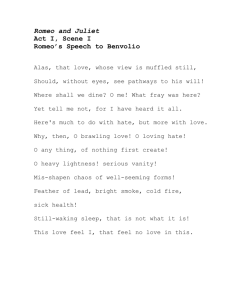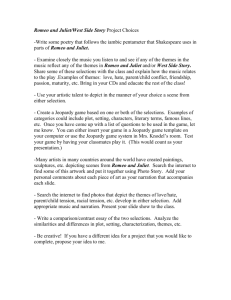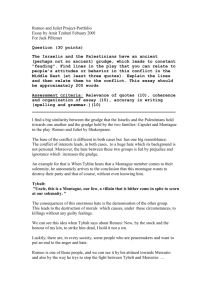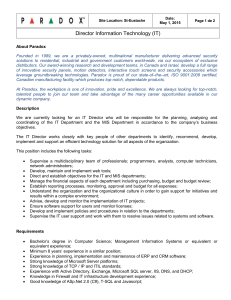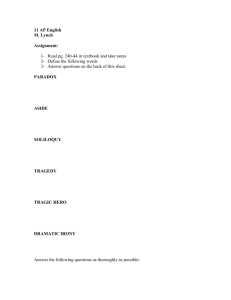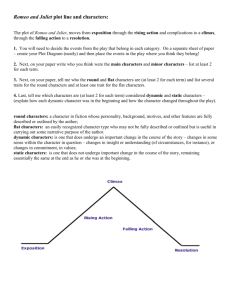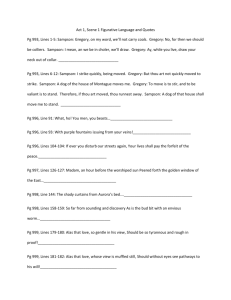Romeo and Juliet: Paradox and Oxymoron Worksheet
advertisement
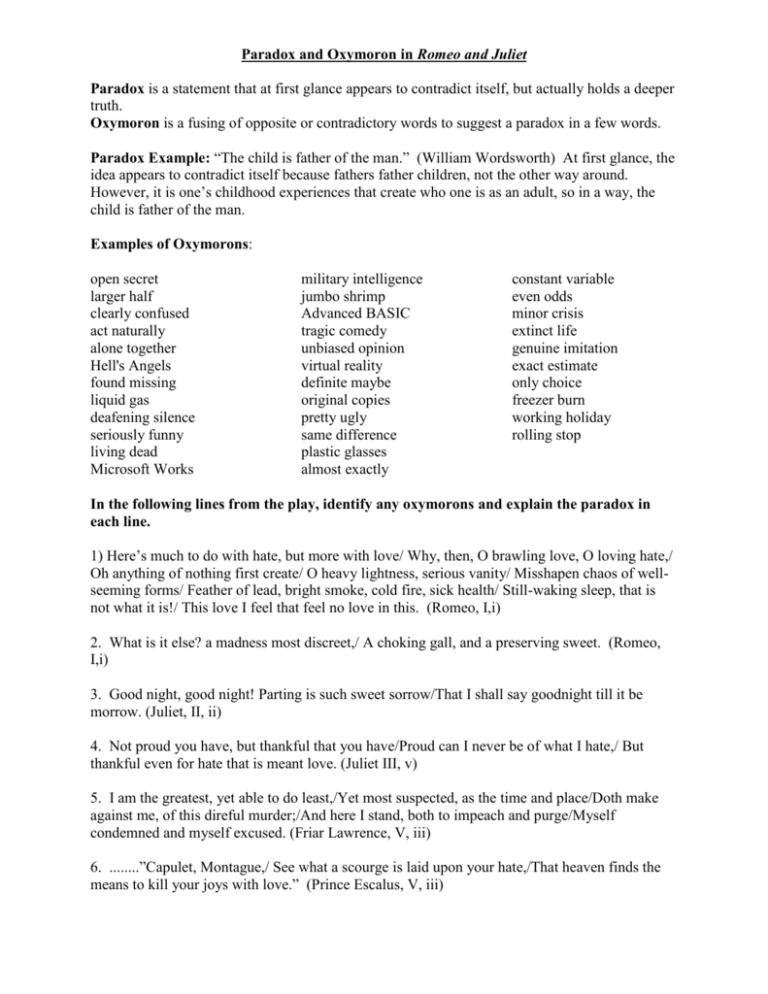
Paradox and Oxymoron in Romeo and Juliet Paradox is a statement that at first glance appears to contradict itself, but actually holds a deeper truth. Oxymoron is a fusing of opposite or contradictory words to suggest a paradox in a few words. Paradox Example: “The child is father of the man.” (William Wordsworth) At first glance, the idea appears to contradict itself because fathers father children, not the other way around. However, it is one’s childhood experiences that create who one is as an adult, so in a way, the child is father of the man. Examples of Oxymorons: open secret larger half clearly confused act naturally alone together Hell's Angels found missing liquid gas deafening silence seriously funny living dead Microsoft Works military intelligence jumbo shrimp Advanced BASIC tragic comedy unbiased opinion virtual reality definite maybe original copies pretty ugly same difference plastic glasses almost exactly constant variable even odds minor crisis extinct life genuine imitation exact estimate only choice freezer burn working holiday rolling stop In the following lines from the play, identify any oxymorons and explain the paradox in each line. 1) Here’s much to do with hate, but more with love/ Why, then, O brawling love, O loving hate,/ Oh anything of nothing first create/ O heavy lightness, serious vanity/ Misshapen chaos of wellseeming forms/ Feather of lead, bright smoke, cold fire, sick health/ Still-waking sleep, that is not what it is!/ This love I feel that feel no love in this. (Romeo, I,i) 2. What is it else? a madness most discreet,/ A choking gall, and a preserving sweet. (Romeo, I,i) 3. Good night, good night! Parting is such sweet sorrow/That I shall say goodnight till it be morrow. (Juliet, II, ii) 4. Not proud you have, but thankful that you have/Proud can I never be of what I hate,/ But thankful even for hate that is meant love. (Juliet III, v) 5. I am the greatest, yet able to do least,/Yet most suspected, as the time and place/Doth make against me, of this direful murder;/And here I stand, both to impeach and purge/Myself condemned and myself excused. (Friar Lawrence, V, iii) 6. ........”Capulet, Montague,/ See what a scourge is laid upon your hate,/That heaven finds the means to kill your joys with love.” (Prince Escalus, V, iii)
